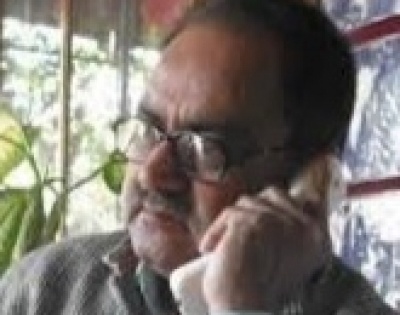Irony shrouds death of Bhopal gas victims' crusader Jabbar
By IANS | Published: November 15, 2019 04:16 PM2019-11-15T16:16:05+5:302019-11-15T16:25:13+5:30
Abdul Jabbar, whose name had for 35 years become synonymous with Bhopal gas tragedy survivors' battle for better rehabilitation deal and health facilities, died on Thursday in near penury and for want of proper treatment in over two months' hospitalisation.

Irony shrouds death of Bhopal gas victims' crusader Jabbar
The 62-year-old activist, who fought for justice for nearly 20,000 victims and thousands of survivors of world's worst industrial disaster in recent times, was buried in a graveyard near the Bhopal railway station after Friday Namaz with hundreds of his admirers in attendance. He is survived by three minor children and wife Saira Bano.
As a 27-year-old, Jabbar had seen his parents and brother dying during the gas tragedy 35 years ago. He had even tried to drive his mother almost 40 km from the town on the fateful night. The personal loss and that of a large neighbourhood turned him into an activist.
Jabbar regretted that Union Carbide ex-CEO Warren Anderson, a US citizen, had escaped shortly after the tragedy and never appeared before a court for trial. He died in the United States in 2014. The government of India not only failed to bring him to book, it also overlooked protests and invited carbide management to invest in other industries in the country.
For nearly a year, Jabbar suffered lung fibrosis and lost 50 per cent of his vision following an accident last year. For the past three months he was diagnosed with cardiac problems and diabetes and developed gangrene in his leg. Ironically, while he stood for fellow citizens in championing the cause of the gas victims, he did not seek financial assistance for his own treatment. His friends did seek to raise some money through social media.
The government then woke up and resolved to bear the expenses for his treatment besides providing assistance to his family. The effort came too late. On Tuesday the hospital authorities had sought an opinion from specialists in Mumbai with a plan to send him there. Before they could decide the next course of action, Jabbar passed away on Thursday night.
In 1987, Jabbar set up the Bhopal Gas Peedit Mahila Udyog Sangathan that fought for justice to the victims, survivors and their families, conducting organised demonstrations, seeking not merely allowances and compensation, particularly for widows who lost their loved ones, but also for employment opportunities.
Jabbar took the fight to the Supreme Court. In 1988 the apex court ordered payment of sustenance allowance to the survivors and in 1989 the government of India and the Union Carbide signed an agreement to provide additional Rs 25,000 each to the affected survivors and Rs one lakh each to the kin of the dead.
The other activists see Jabbar's death as a blow to the gas victims' cause. Rachna Dhingra, who runs another organisation, Bhopal Group for Information and Action, said Jabbar fought for gas victims' cause till his last breath and his departure from the scene is a major loss to the organisations fighting for survivors of the tragedy.
Rasheeda Bi, another known activist who helped provide jobs to the women survivors, said Jabbar had set an example as a selfless social worker. His struggle for the poor was grossly underestimated.
( With inputs from IANS )
Open in app